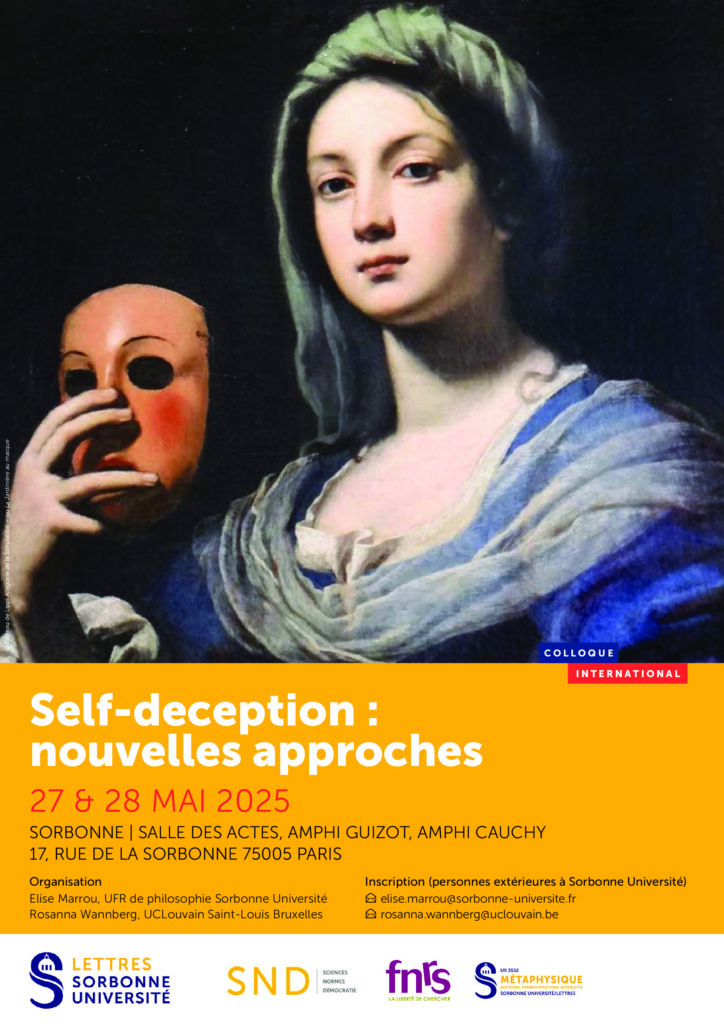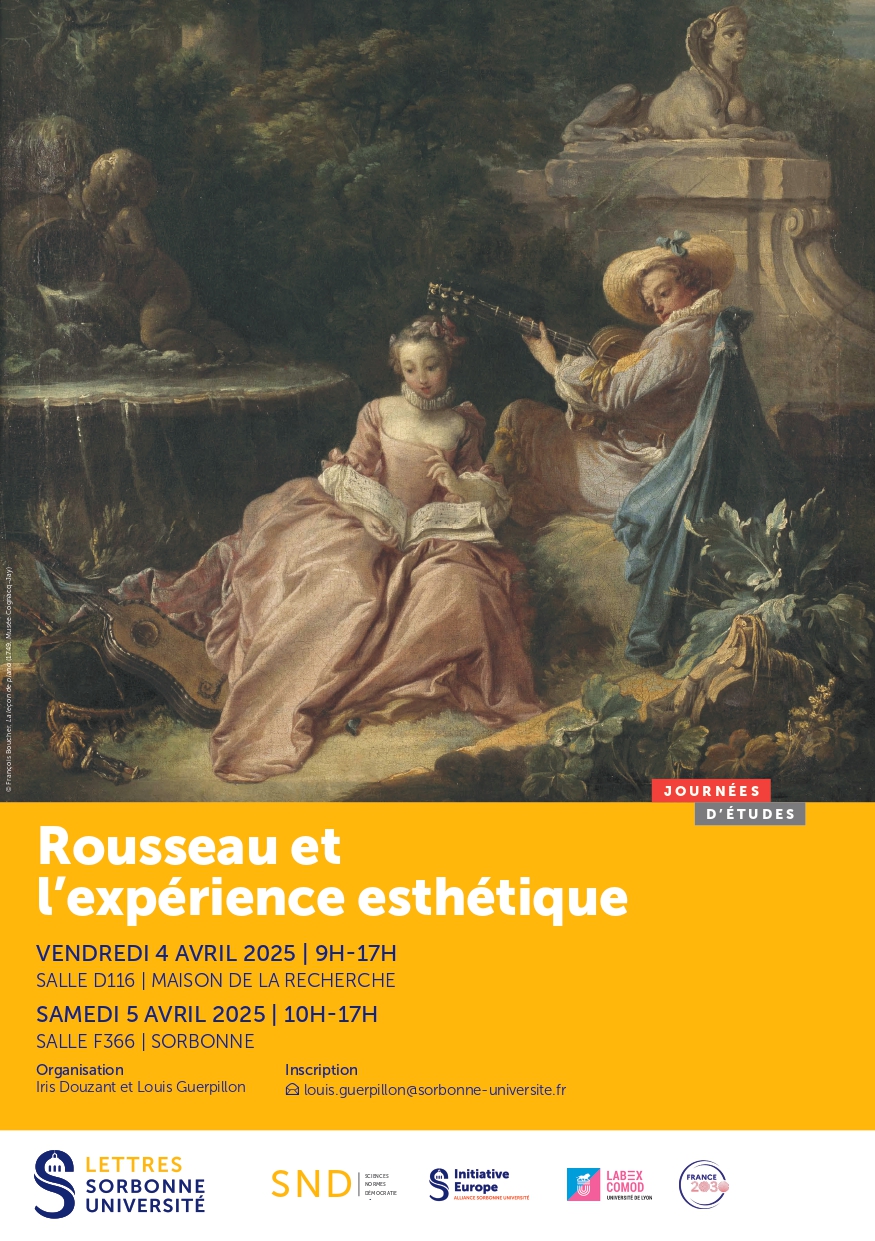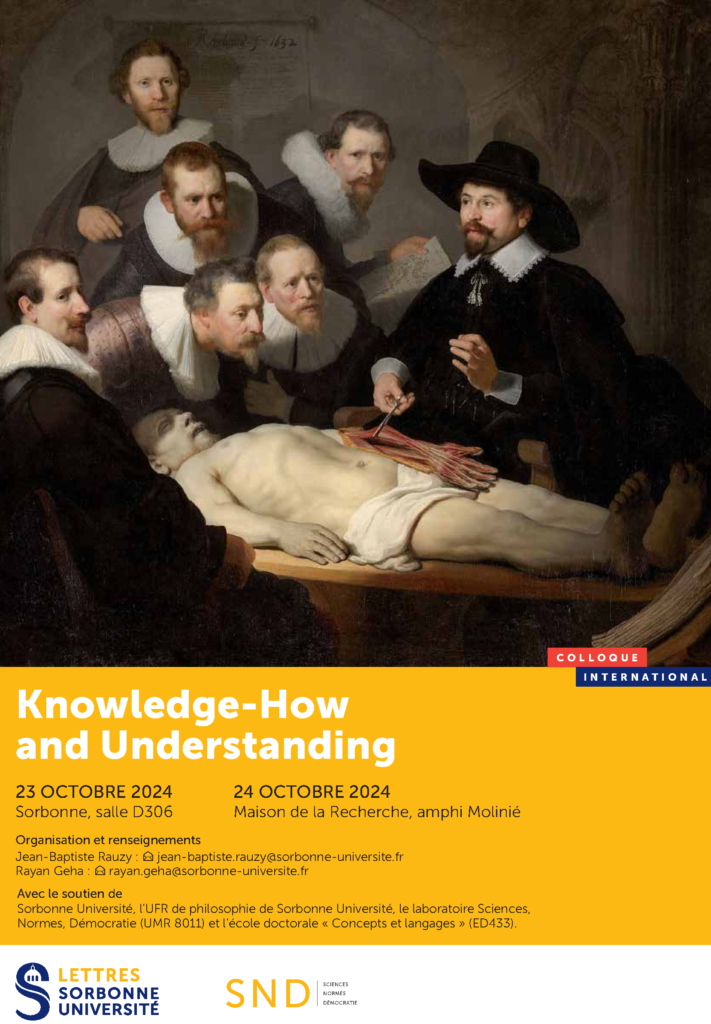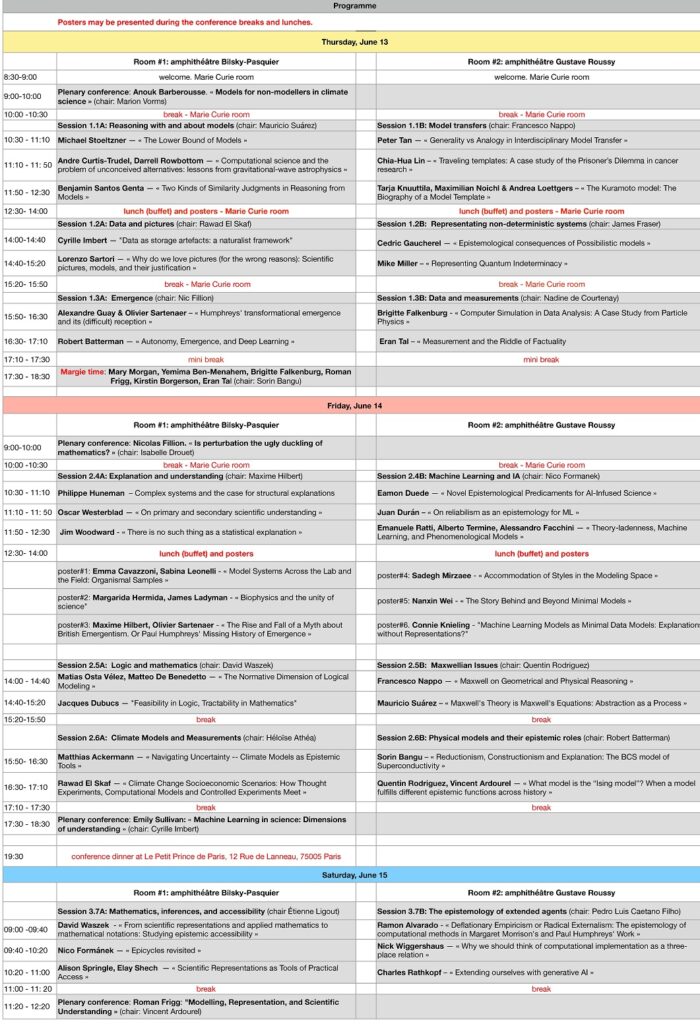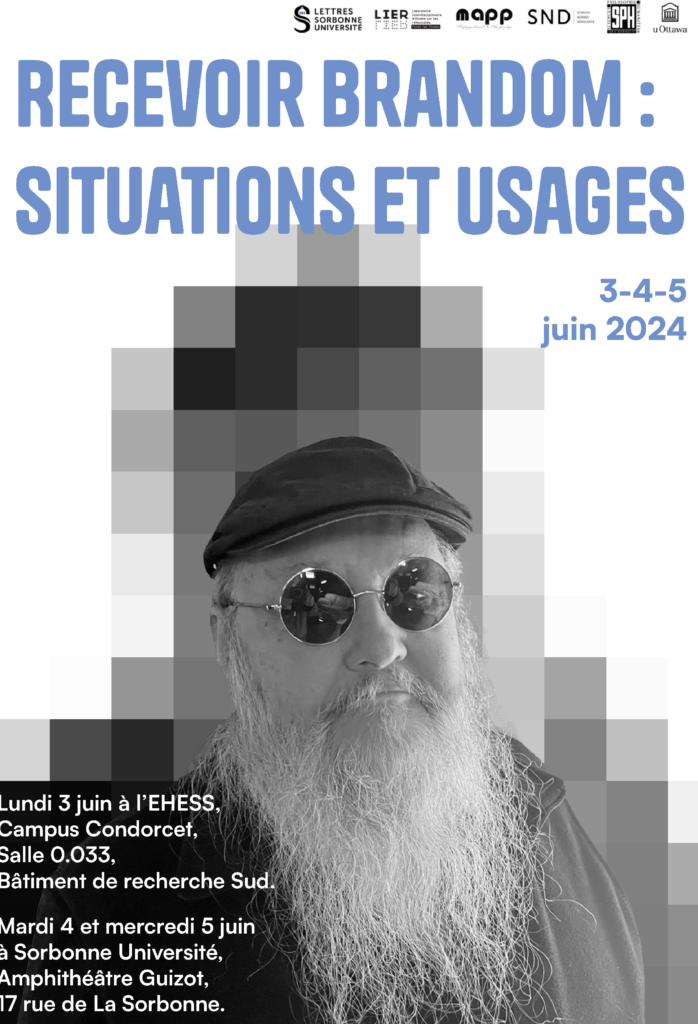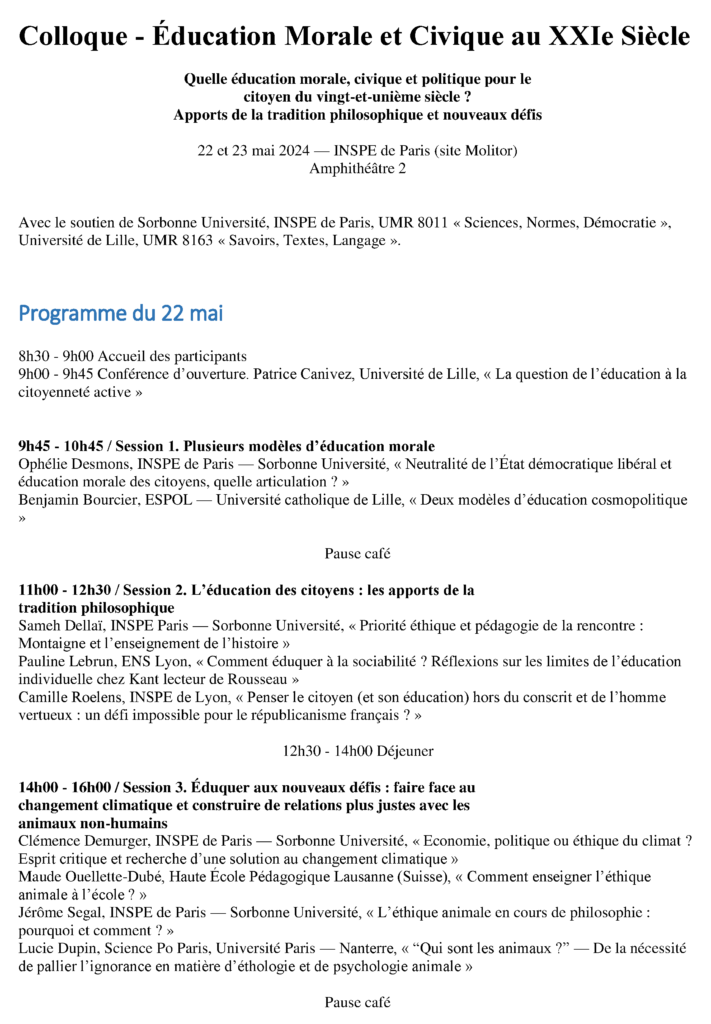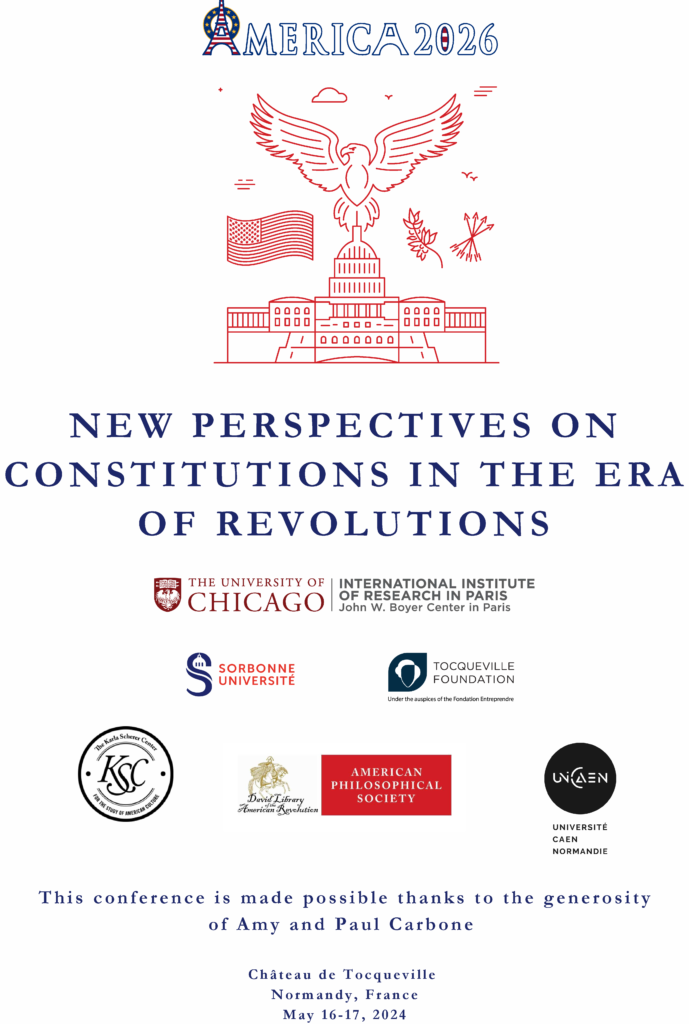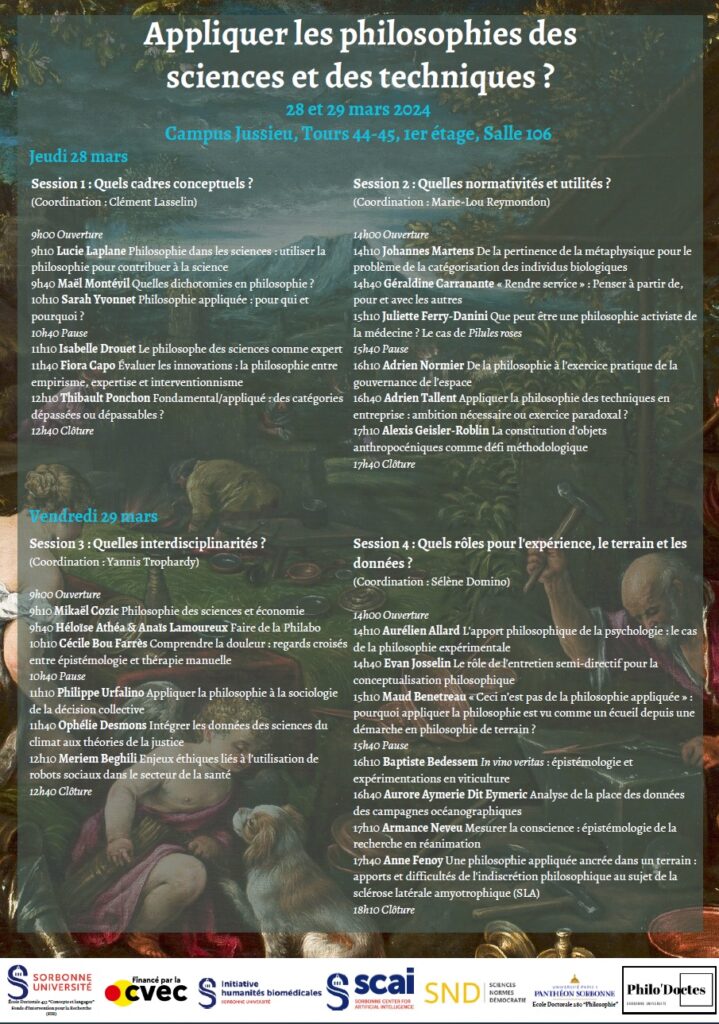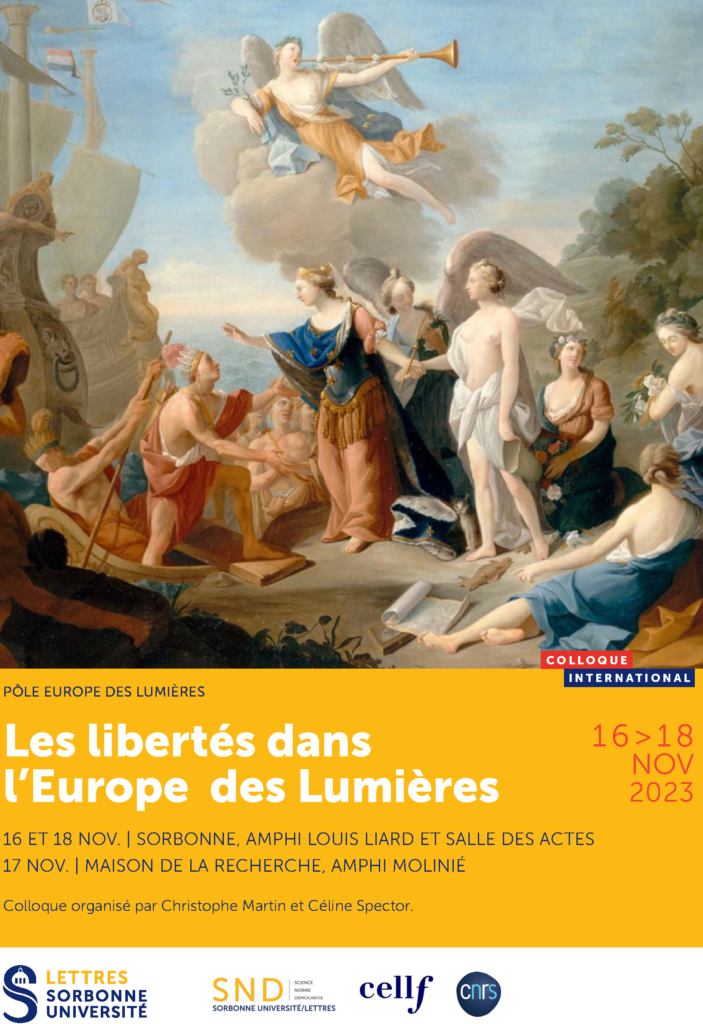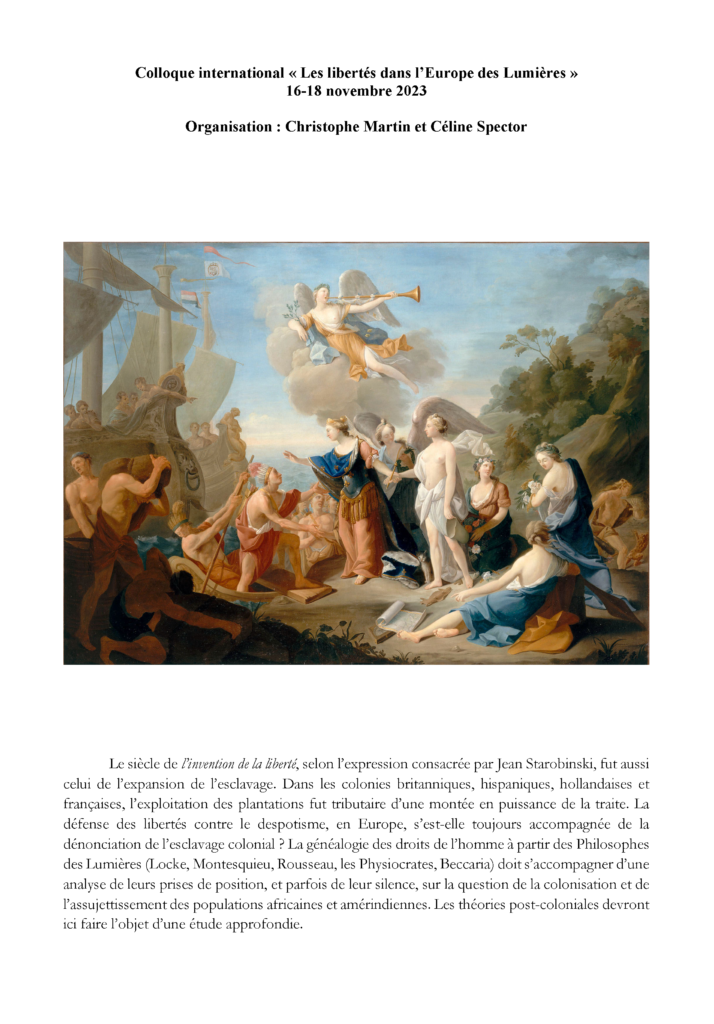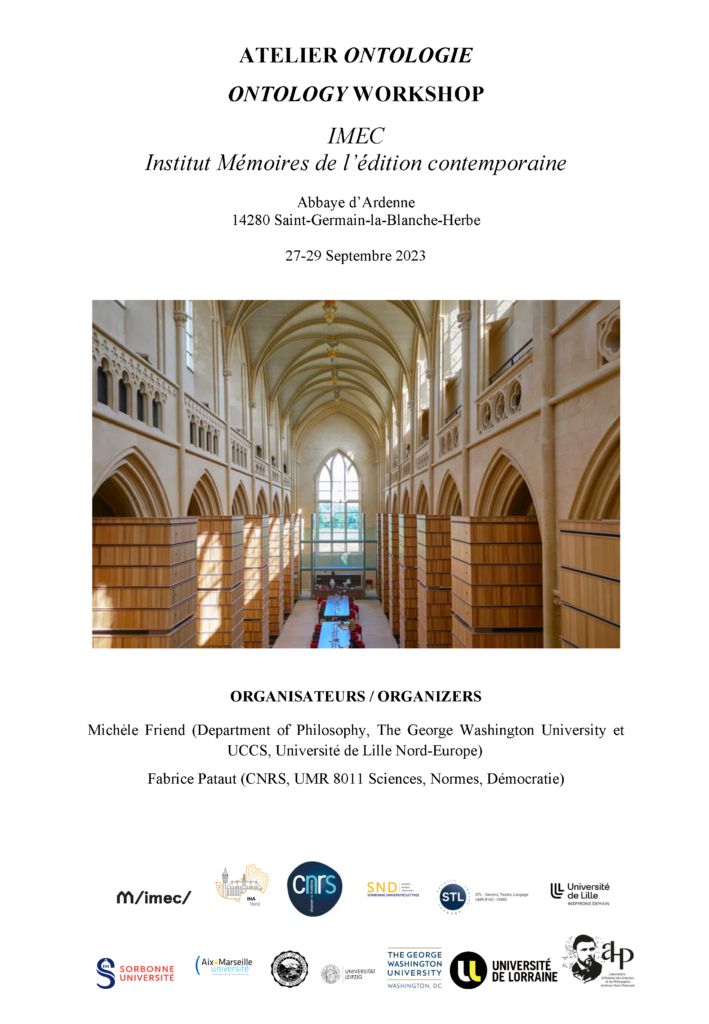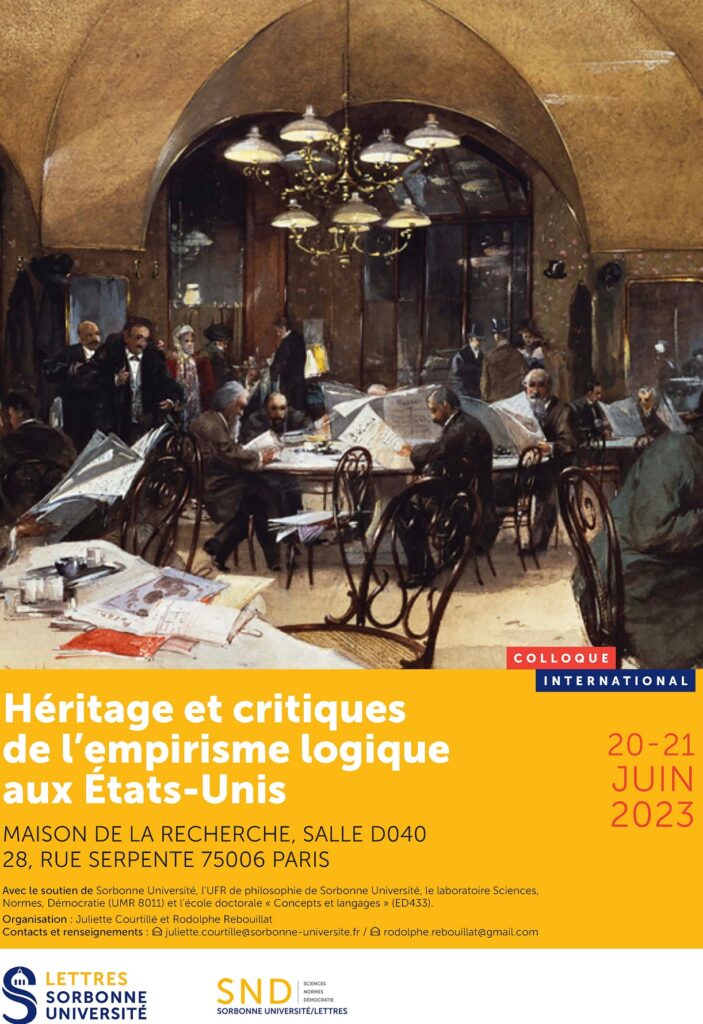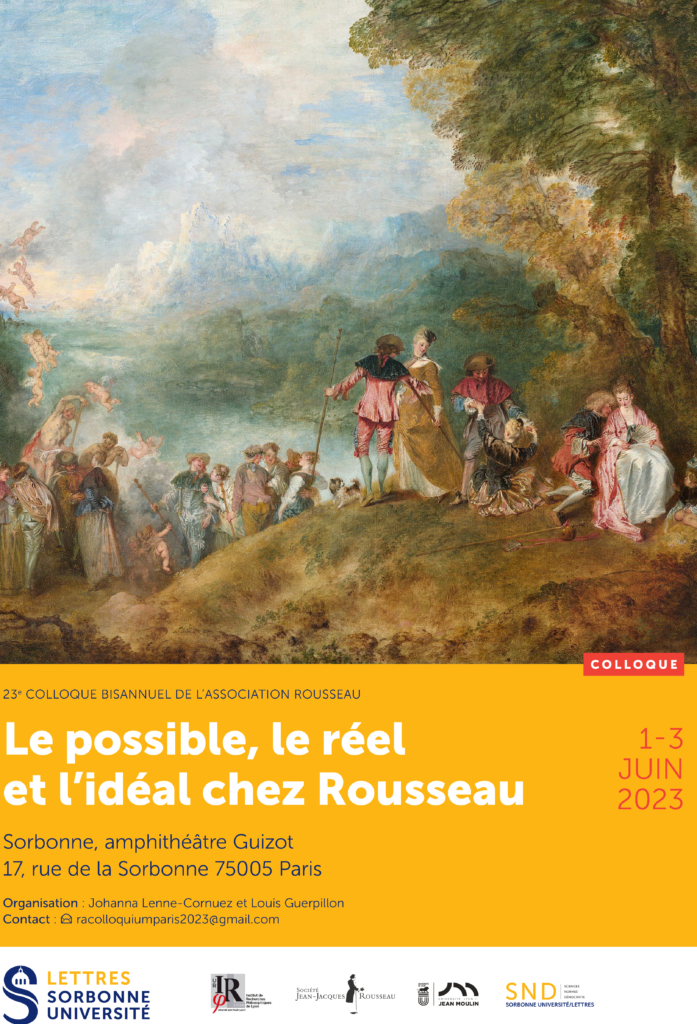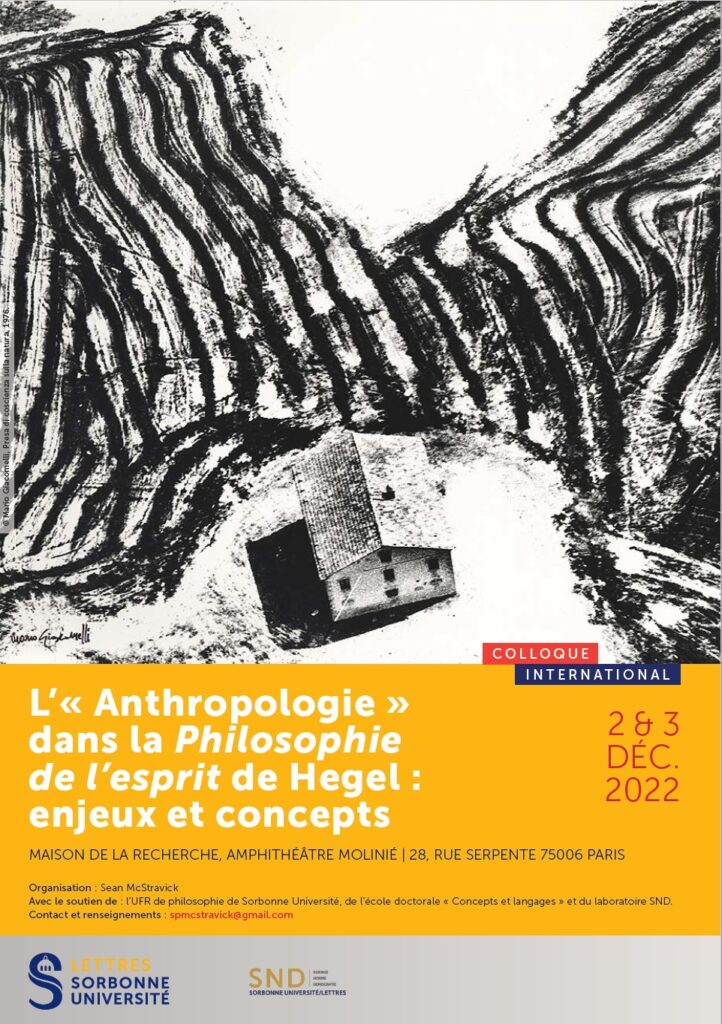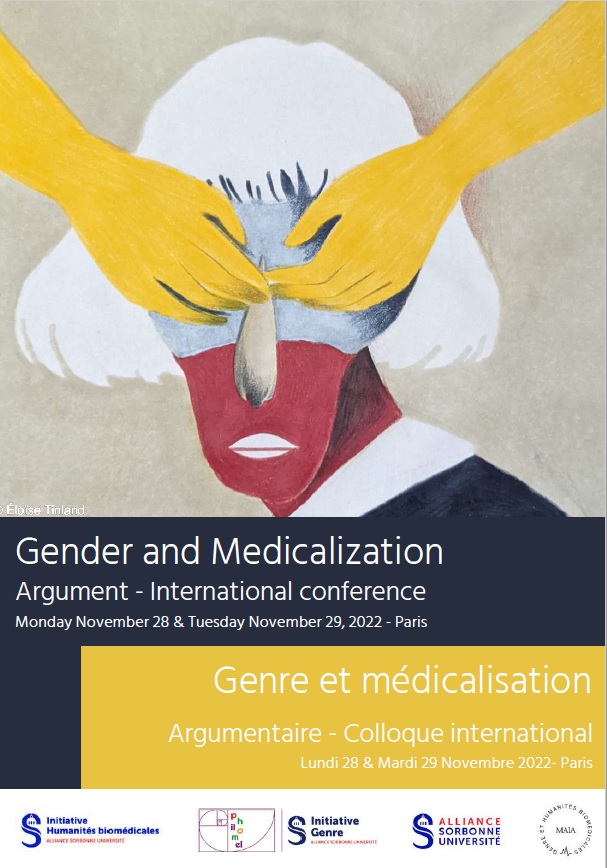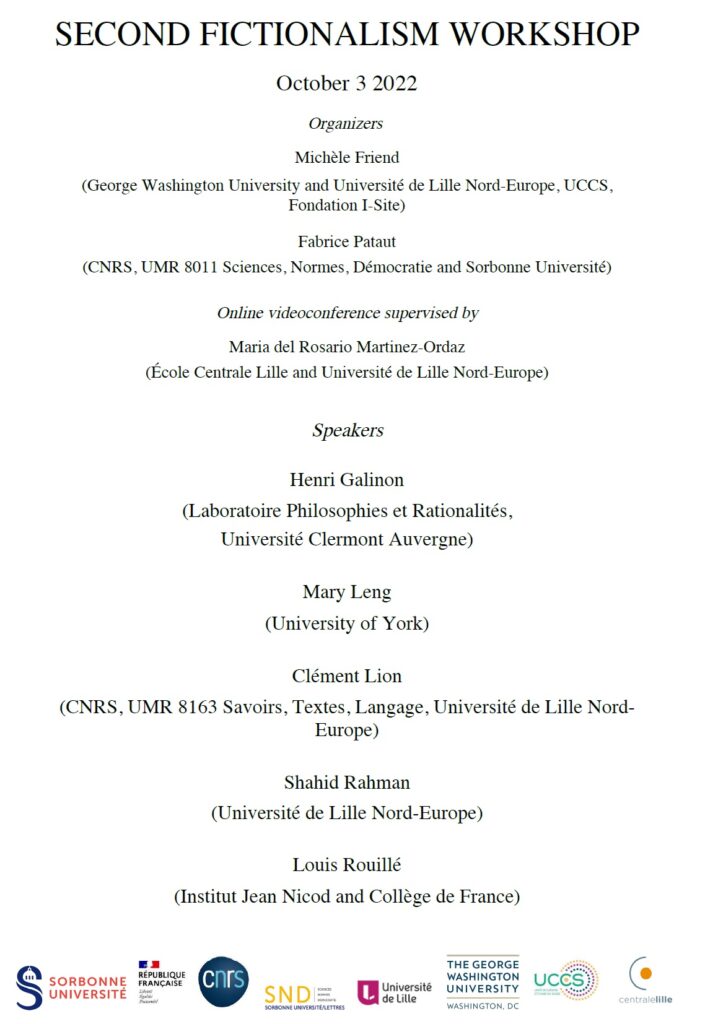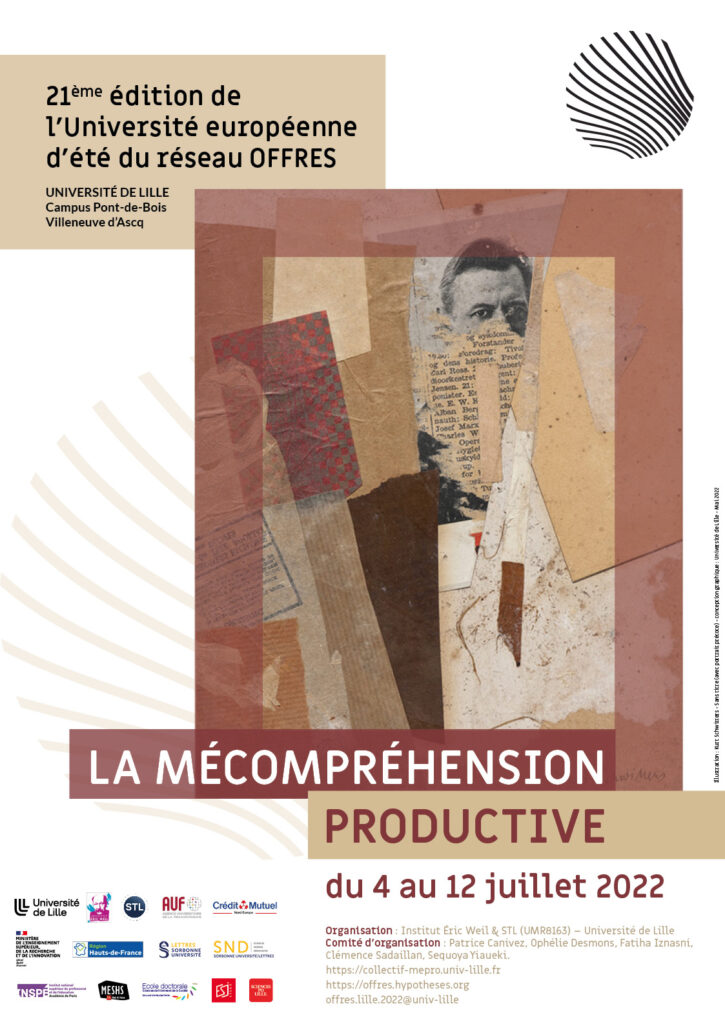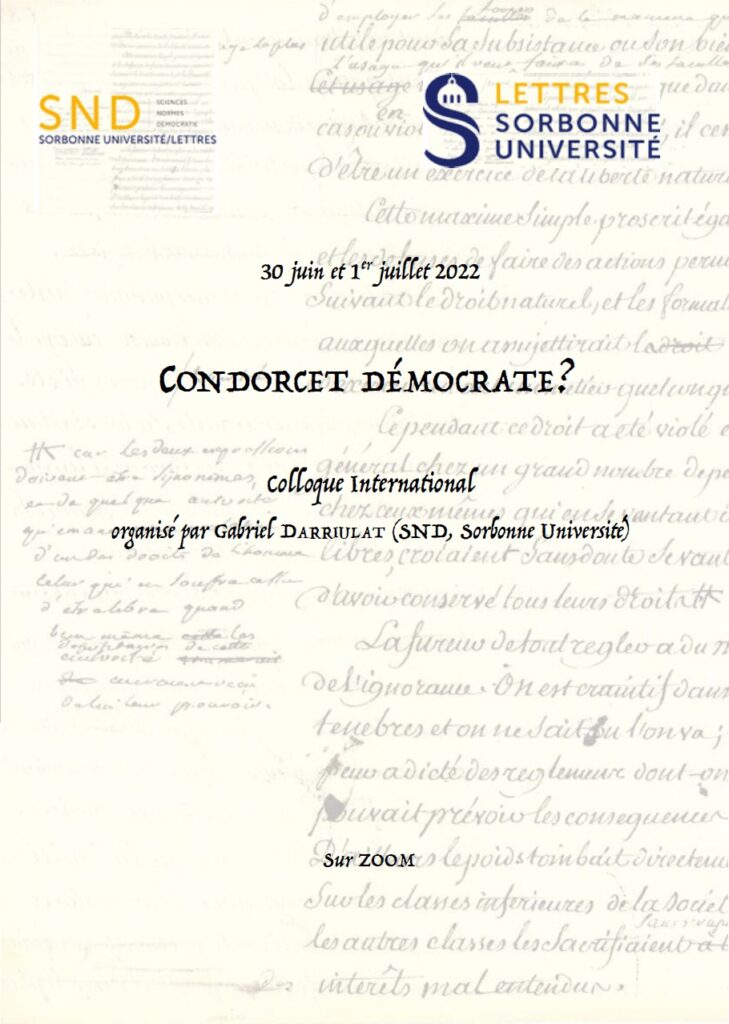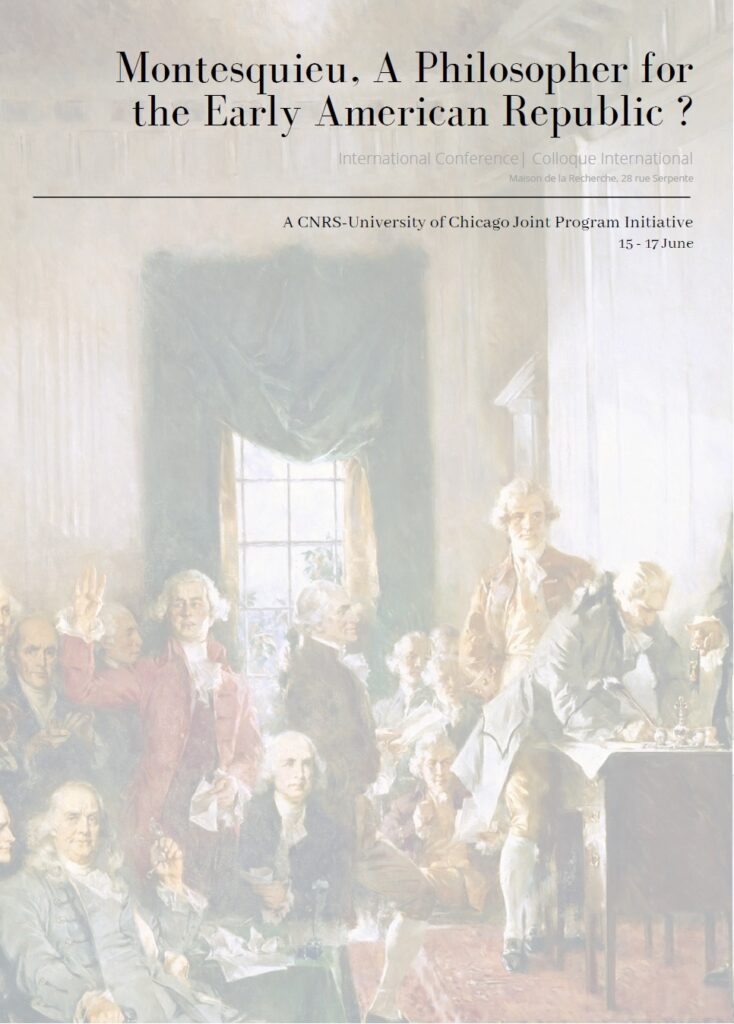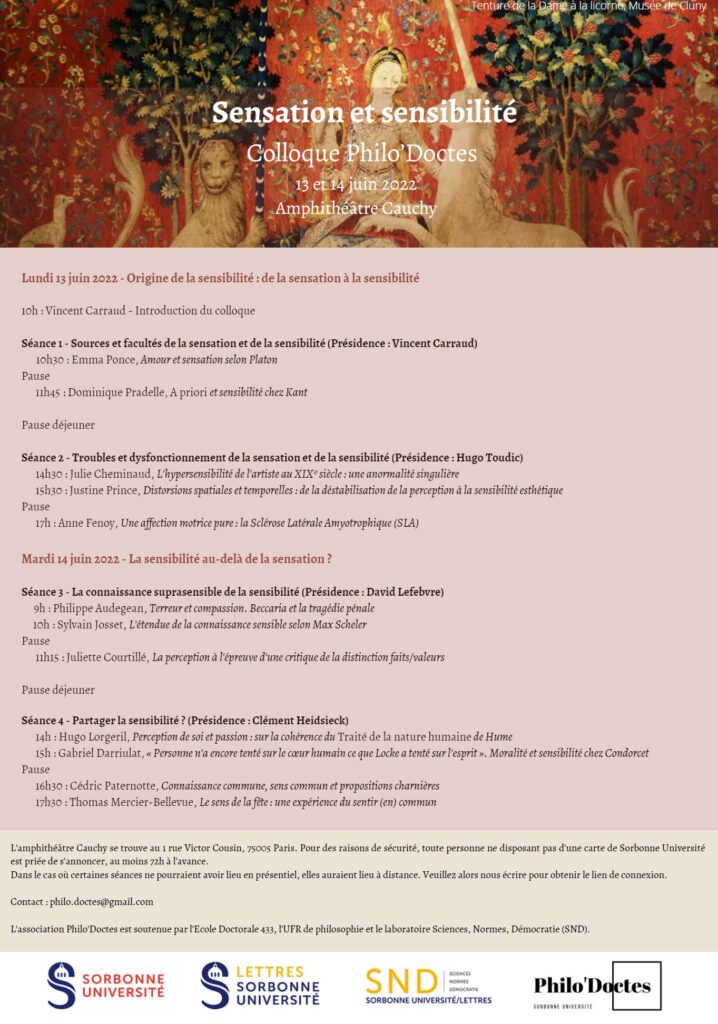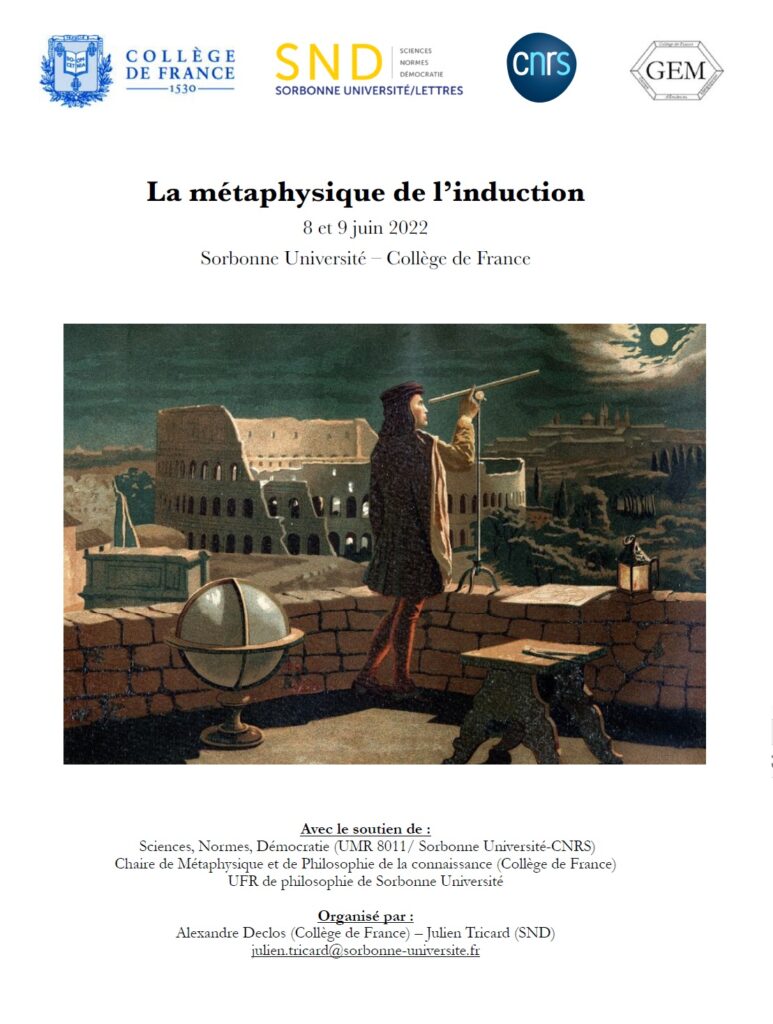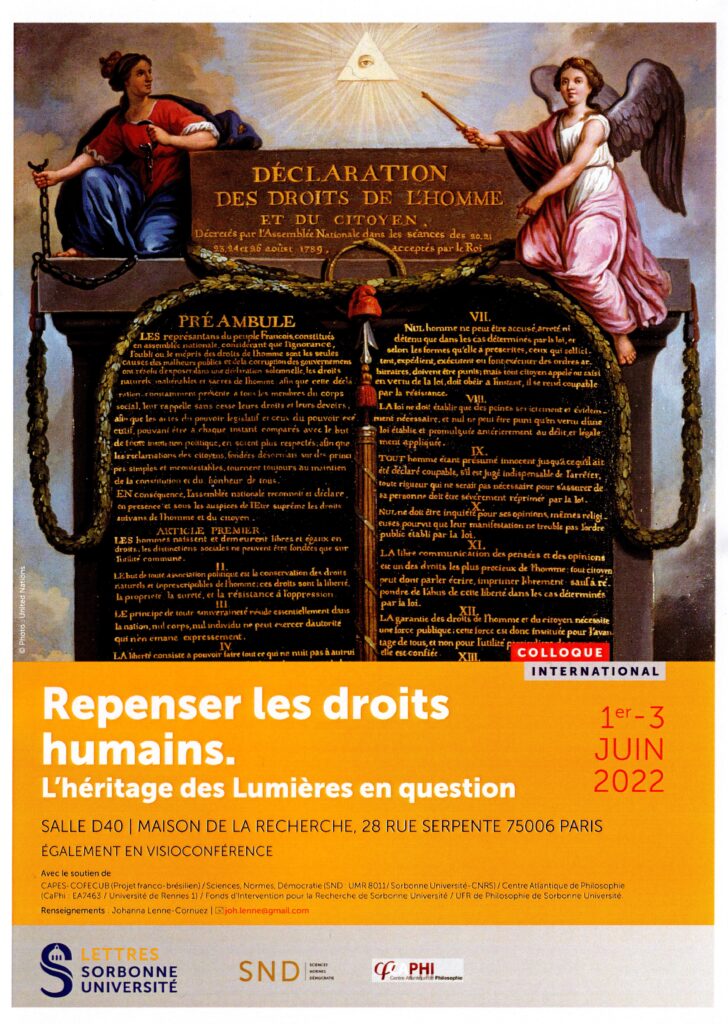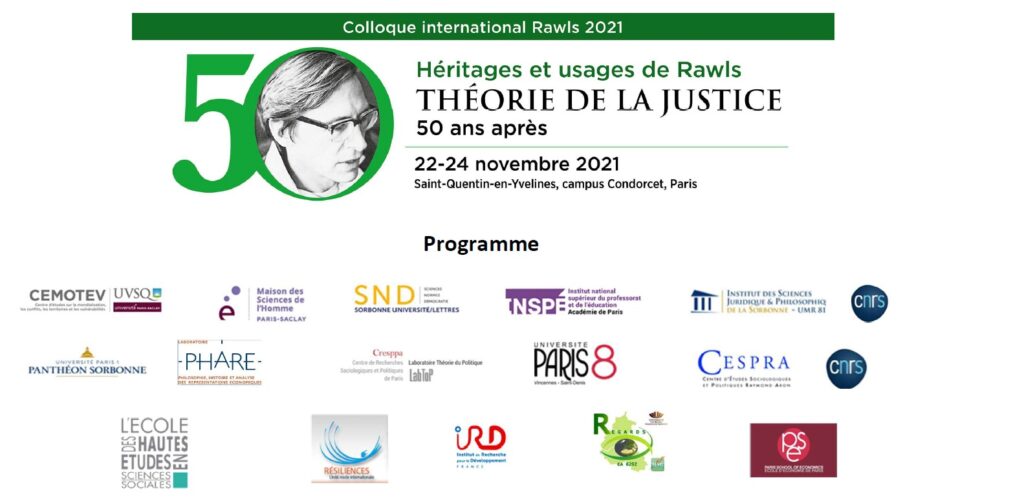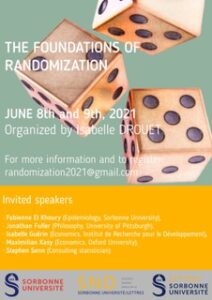Colloques
Colloque Self-deception : nouvelles approches – 27 et 28/05/2025
Colloque “Rousseau et l’expérience esthétique” du 04 au 05/04/25
Colloque “Knowledge – How and Understanding” du 23 au 24 Octobre 2024
Colloque “Origines et fins” du 19 et 20 juin 2024
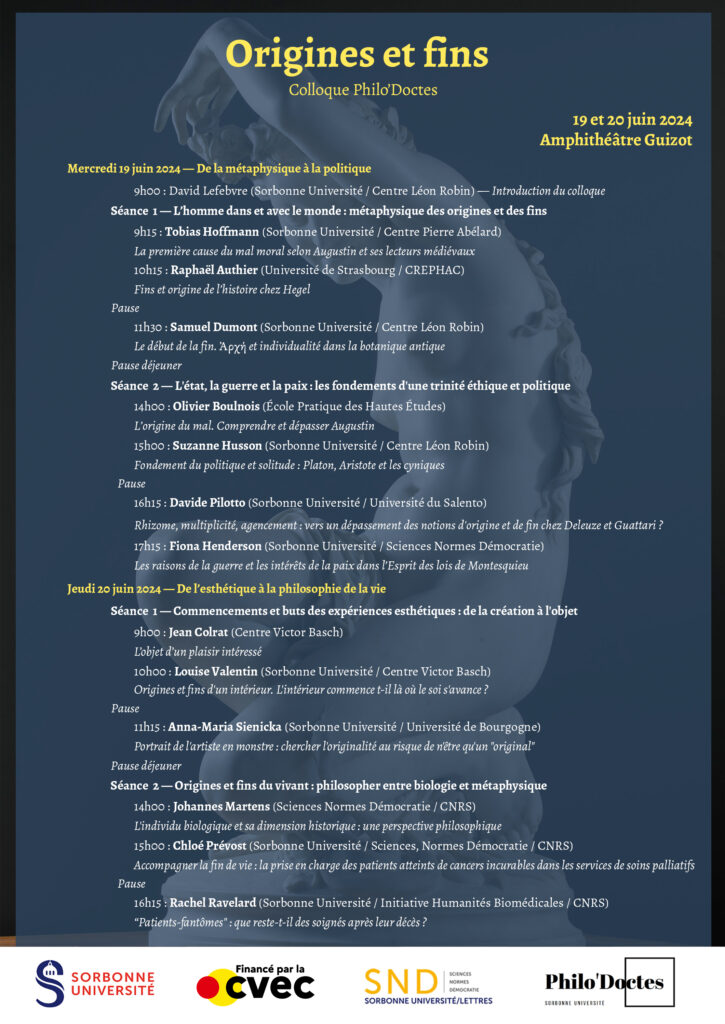
Colloque MRC2024 : Models, Representation, and Computation du 13-15 juin 2024
Colloque “Recevoir Brandom : situations et usages” du 3 au 5 juin 2024
Colloque – Éducation Morale et Civique au XXIe Siècle – Paris du 22 au 22 mai 2024
Colloque « Tocqueville Conférence – New Perspectives On Constitutions In The Era Of Revolutions » 16-17 mai 2024
Colloque “Appliquer les philosophies des sciences et des techniques ?” du 28 au 29 mars 2024
Colloque international « Les libertés dans l’Europe des Lumières »
Paris – 16-18 novembre 2023
Colloque Ontologie 27-29/09/2023 – IMEC / Caen
https://www.imec-archives.com/activites/atelier-ontologie
Colloque « Héritage et critiques de l’empirisme logique aux États-Unis »
Paris – 20 au 21 juin 2023
23e Colloque bisannuel de l’Association Rousseau – Paris – 1 au 3 Juin 2023
–
L’« Anthropologie »dans la Philosophie de l’esprit de Hegel : enjeux et concepts – Paris – 2 et 3 décembre 2022
Genre et Médicalisation – Paris – 28 et 29 Novembre 2022 – (Version Française) (Version Anglaise)
Colloque Fictionalism – Paris – 3 Octobre 2022
21ème édition de l’Université européenne d’été du réseau OFFRES
UNIVERSITÉ DE LILLE – Campus Pont-de-Bois – Villeneuve d’Ascq
Condorcet Démocrate ?
Colloque sur zoom les 30 juin et 1er Juillet 2022
1) Liens Zoom:
Sujet : Colloque Condorcet
Heure : 30 juin 2022 02:00 PM Paris
Participer à la réunion Zoom
https://us02web.zoom.us/j/88450001611
ID de réunion : 884 5000 1611
Sujet : Colloque Condorcet Jour 2
Heure : 1 juil. 2022 02:00 PM Paris
Participer à la réunion Zoom
https://us02web.zoom.us/j/86266085685
ID de réunion : 862 6608 5685
–
Montesquieu, A Philosopher for the Early American Republic ? – Paris – 15 au 17 juin 2022
Colloque Philo’Doctes 2022 : Sensation et sensibilité – Paris – 13 et 14 juin 2022
–
La métaphysique de l’induction – Paris – 8 et 9 juin 2022
Repenser les droits humains – Paris – 1, 2 et 3 juin 2022
RAWLS – Paris – 22, 23 et 24 novembre 2021
–
The foundations of randomization – 8 et 9 juin 2021
Randomized controlled trials have been much discussed in the last 20 years for the status they are granted within evidence-based medicine, usually at the top of hierarchies of evidence. Their importance has also been repeatedly underlined in the context of the pandemic. These discussions, in philosophy, in science and in the public debate, often presuppose, more or less explicitly, that the epistemic reasons to randomize are clearly identified and well-known. But this is not the case. The foundations of randomization fail to be consensual even in the one context where it may seem obvious that randomization is the best way to go – that is, to determine whether a given medical intervention has a causal effect on a disease. The most common view, targeted by most criticisms of randomization, is that randomization is a means to balance confounders, known and unknown, between parallel groups, and thereby to ensure that any difference between groups can be interpreted causally. However, Fisher rather introduced randomization as a device making it possible to calculate the probability of the different possible observations and to determine whether the observed difference is statistically significant. What are the different justifications of randomization and how do they compare to each other? In which situations do they hold and, for that matter, should we randomize at all? The workshop will investigate these questions, which are particularly urgent in the current, pandemic context, where we need to make informed methodological choices as regards the assessment of preventive or curative treatments. How questions about randomization relate to other topics in the philosophy of statistics – primarily the opposition between frequentist and Bayesian approaches – will also be explored.
The workshop will bring together philosophers and practitioners to think about these issues. Invited speakers will include: Fabienne El Khoury (epidemiology, Sorbonne University), Jonathan Fuller (philosophy, University of Pittsburgh), Isabelle Guérin (economics, Institut de Recherche pour le Développement), Maximilian Kasy (economics, Oxford University), Stephen Senn (statistician consultant). Both invited and contributed talks will be allocated 45 minutes in total, for presentation (up to 30’) and discussion. The workshop will be held online and upon registration.
Abstracts of 500 to 1000 words should be sent to randomiz…@gmail.com by May 9th. Decisions will be made by May 18th. Requests to attend can be sent to the same address.
Plus d’informations : Abstracts et programme ici.
Organization: Isabelle Drouet (SND, Sorbonne Université)
Scientific committee: Isabelle Drouet and Anouk Barberousse (SND, Sorbonne Université)

